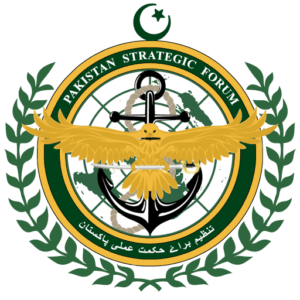Hazrat Umar bin Khattab R.A was one of the most powerful and influential Muslim caliphs in history. Being a close friend of the Prophet Muhammad PBUH and succeeding Hazrat Abu Bakar R.A he was an expert Muslim jurist known for his pious and just nature who brought revolutionary reforms in state polices which resulted eradication of poverty via massive economic, geopolitical and military growth of the Caliphate. Under his rule the Caliphate expanded quickly conquering the Sasanian Empire and more than two-thirds of the Byzantine Empire. His attacks against the Sasanian Empire resulted in the conquest of Persia in less than two years after which he continued expansion into the Levant, Egypt, Cyrenaica, Tripolitania, Fezzan, and Eastern Anatolia. However, despite all the conquests he mainly focused on improving the political and economic system of his land implementing a strong centralized political system, developing Bayt al-mal into a proper financial institution, appointing permanent civil servants and creating a professional standing army, many reforms and starting welfare projects such as canals to facilitate trade and agriculture.
As such the economic policies under Hazrat Umar can be explained under 3 units
1. Foreign Exchange
2. Bait-ul-Mal
3. Economic Governance
4. Infrastructure projects and free trade
Foreign Exchange
Under Hazrat Umar bin Khattab R.A the caliphate expanded rapidly acquiring many new lands that brought in more sources of revenue for the state which was centralized under laws implemented by the caliph. The first and foremost important thing to be centralized was collection of Zakat within and outside the Arabian mainlands from Muslims. Zakat was mandatory for those with wealth and properly stored in established treasury which was to be used to facilitate the poor and distribute wealth among all to stimulate maximum economic activity. Next important steps taken by Hazrat Umar R.A were centralization of Ghanimah and Al-Fai (The bounty captured by the Muslim army on war path and the wealth that was left behind by the opposing army). Hazrat Umar R.A established clear rules of wealth distribution capture on conquest during wartime designated fixed % that would be sent to the state finances and kept by the soldiers. These rules also included terms and conditions for dealing with prisoners of war and slave freedom. Another step taken was implementation of a centralized Kharāj system where lad tax was imposed on rulers in the newly conquered territories which generated a lot of revenue for the state. Jizya system was also implemented where an annual individual tax would be placed on non-Muslims of the conquered territories to fund state expenditures for public safety and infrastructure projects. Lastly an important reform was made on standardization of customs imposed on merchants and their merchandise for passing through international boundaries within the caliphate. This generated extra much needed revenue for construction of roads and canals to promoted easier and safer trade routes ultimately increasing trade and customs acquired form it.
Bait-ul-Mal
Although Bait-up-Mal was a system existing before Hazrat Umar R.A reign it was he who centralized it into a proper financial institution whose job was to manage the states collected finances and distribute wealth among the needy to reduce poverty and create a proper welfare state. The Bait-ul-mal aided the Muslim and non-Muslim poor, needy, elderly, orphans, widows, and the disabled. Hazrat Umar R.A also introduced a child benefit and pensions for the children and the elderly bringing financial stability to all residents of the Caliphate. While he did all this, he kept an unspecified salary for himself mainly financing his family by his trade activities becoming a source of inspiration for many. He implemented a strong administered system where public workers and soldiers acquired a specified salary standardizing government worker office and creating a standing professional army financed by the state.
Economic Governance
During the Muslims conquests of Persian lands reports were sent back to Hazrat Umar R.A about the centralized administrative system mused by the Persians and its effectiveness. After taking many things into consideration he started implementing bits of it into his own state policy centralizing financial institutions and making corruption practices harder for those in power. He was always thinking one step ahead in terms of the economy of that era. Development economics is one of them, for example, is the problem of employment. Salaries head of state and army is nothing new. Because at the time of the Prophet and Abu Bakr had never done payroll to the Heads of State and Army. Hazrat Umar R.A introduced the concept of head of all governance institutions followed by a hierarchy of those under them to develop a system of connected and centralized governance .This is a sign indicating that the economy during reign of Umar was ahead of its time.
Infrastructure projects & free trade
During his reign Hazrat Umar bin Khattab R.A started many public infrastructure projects to facilitate easier trade and communication between the new provinces. The aim was to consolidate the gains made and develop a connected system of roads and canals to facilitate residents and merchants easy commute for trade or travel purposes. New and protected roads were developed all over the caliphate to encourage trade activities for merchants from far of lands resulting in economic boom through exchange of goods and production. Meanwhile canals were built on many important locations such as along the banks of the river Neil or Tigress to facilitate canal-based trade where massive amounts of cargo sailed through far of lands with ease previously inaccessible. The canals also provided water ways for agriculture on previously uncultivable barren lands ultimately increasing food supply grown from surplus of farms. Meanwhile food storage and disaster management infrastructure projects all over the caliphate were carried out to store prerecorded amount of grain in case of a famine which ended up saving a hundred thousand people during the great famine of 638 CE.
Another big aspect to economic success was free trade which merchants benefited from all over the caliphate. As sales tax was not a system in Islam toe encourage commerce it wasn’t implemented resulting is massive growth of trade activities as the caliphate expanded ore and more. This attracted many foreigner non-Muslims to the lands who wished for their businesses to grow resulting in more economic activities within the caliphate. In the end all these policies by Hazrat Umar R.T made a proper welfare state where poverty was visually eradicated to the point it got difficult to find people who needed Zikat assistance.







